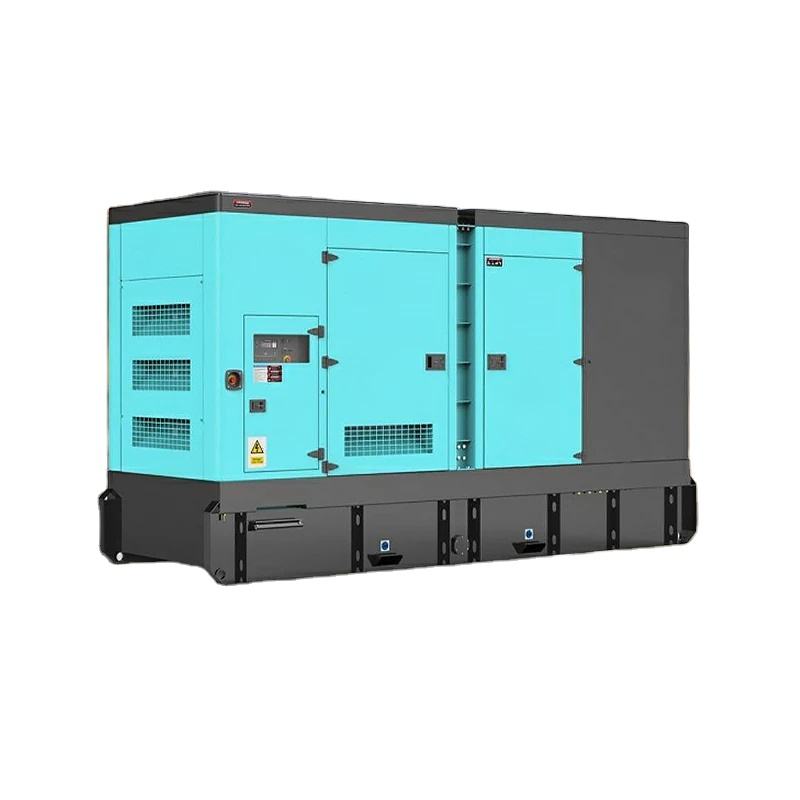
Generators provide essential backup power during outages and offer off-grid electricity for various applications. But with so many options available, understanding the different types is crucial for making the right choice. This guide breaks down the four main types of generators: portable, inverter, standby, and induction. Which one is the best fit for your specific needs? Let's find out.
1. Portable Generators
Portable generators are the most common type, known for their mobility and affordability. They range in power output from a few thousand watts to over 10,000 watts, making them suitable for powering essential appliances during power outages or providing electricity for recreational activities like camping or tailgating. Fuel sources typically include gasoline, propane, or sometimes dual-fuel options. While convenient, portable generators can be noisy and less fuel-efficient than other types. Consider the wattage required for your devices and the runtime needed when selecting a portable generator.
2. Inverter Generators
Inverter generators are a more sophisticated version of portable generators. They utilize advanced electronics to produce cleaner, more stable power, ideal for sensitive electronics like laptops, smartphones, and medical equipment. They are also significantly quieter and more fuel-efficient than traditional portable generators, adjusting their engine speed based on the power demand. This variable speed operation also contributes to longer run times. However, inverter generators tend to be more expensive than their conventional portable counterparts.
3. Standby Generators
Standby generators, also known as whole-house generators, offer a permanent backup power solution for residential or commercial buildings. They are typically installed outside the building and connected to the electrical system, automatically kicking in during a power outage. Powered by propane or natural gas, they provide continuous power until utility power is restored. Standby generators offer higher power output compared to portable or inverter generators, capable of running multiple appliances, HVAC systems, and even entire homes. However, they are significantly more expensive and require professional installation.
4. Induction Generators
Induction generators, while less common for consumer applications, are widely used in industrial settings and renewable energy systems. Unlike other generator types that rely on rotating magnets and brushes, induction generators utilize a rotating magnetic field to induce current in the stator windings. This design makes them highly reliable and low-maintenance, with a longer lifespan compared to traditional generators. However, they require an external power source to create the initial magnetic field, making them less suitable for standalone backup power solutions. Which type of generator is right for you?
5. Choosing the Right Generator: Key Considerations
Selecting the appropriate generator type involves assessing several factors, including power requirements, budget, portability needs, and the intended application. For occasional use and powering a few essential appliances during outages, a portable generator might suffice. If quiet operation and fuel efficiency are priorities, an inverter generator is a better choice. For whole-house backup power and automatic operation, a standby generator is the ideal solution. Lastly, for specialized industrial applications requiring high reliability and minimal maintenance, induction generators are often preferred. What fuel type is best for your needs?
6. Fuel Options for Generators
Generators utilize various fuel types, each with its pros and cons. Gasoline is readily available but has a shorter shelf life and requires more frequent refueling. Propane offers a longer shelf life and cleaner burning, while natural gas provides a continuous fuel supply for standby generators. Dual-fuel generators offer flexibility, allowing you to switch between gasoline and propane. The choice depends on factors like availability, cost, and convenience.
7. Maintenance and Safety Tips for Generators
Regardless of the type of generator you choose, regular maintenance is essential for optimal performance and longevity. This includes checking oil levels, replacing air filters, and inspecting spark plugs. Furthermore, operating a generator safely is paramount. Always ensure adequate ventilation to prevent carbon monoxide poisoning and never operate a generator indoors or in enclosed spaces. Following manufacturer guidelines and safety precautions is crucial for preventing accidents and ensuring safe operation.
8. Future Trends in Generator Technology
The generator landscape is constantly evolving, with advancements in fuel efficiency, noise reduction, and smart technology integration. Battery-powered generators are gaining popularity as a cleaner and quieter alternative, especially for smaller power needs. Furthermore, the integration of smart features allows for remote monitoring and control, enhancing convenience and efficiency.
Conclusion: Powering Your Needs with the Right Generator
Choosing the right generator requires careful consideration of various factors, including power requirements, budget, and application. This guide provides a comprehensive overview of the four main types of generators - portable, inverter, standby, and induction – empowering you to make an informed decision. By understanding the unique features and benefits of each type, you can select the perfect generator to meet your specific power needs. Consider your requirements carefully, and you’ll be well-equipped to handle any power outage or enjoy off-grid electricity with confidence.
Do you have any further questions about selecting the right generator? Let us know in the comments below! We’re here to help you find the perfect power solution.






